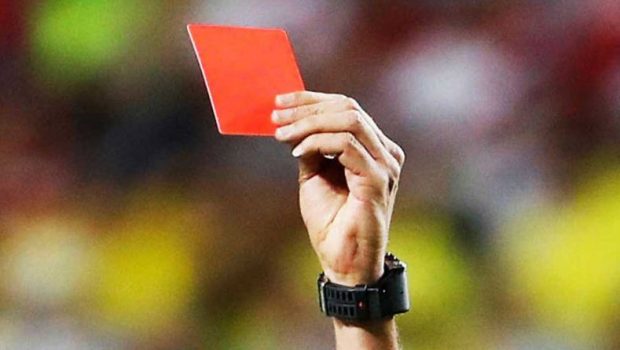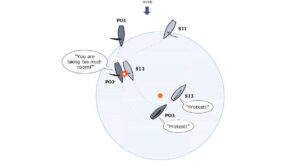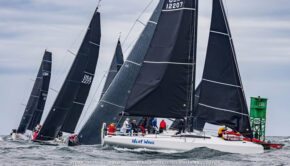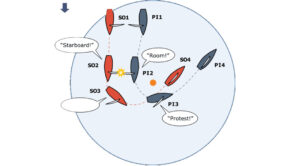Misconduct Guidance: Policy & Jurisdiction
Published on December 4th, 2017
Dealing with misconduct is probably the least pleasurable part of the work of race officials but an important part that must not be ignored. There is considerable evidence that misconduct in the form of bad behaviour has a detrimental effect on our sport, even causing some to choose another way to spend their time.
In the Racing Rules of Sailing, Rule 69 covers misconduct and a guide has been published to help deal with it promptly, fairly and following established rules and practices. Here’s an excerpt:
POLICY & JURISDICTION
When should rule 69 be used?
• Rule 69 should be used when there are allegations of behavior which are unacceptable and contrary to the spirit in which the sport should be conducted. The sport should not tolerate bad behavior, and action under rule 69 is a potent way of dealing with this problem. Turning a blind eye to misconduct only serves to damage the enjoyment of those who behave properly, which in turn puts people off participating in the sport.
• It is the responsibility of all race officials to deal with misconduct in an appropriate and timely manner.
• World Sailing undertook a thorough review of the rules dealing with misconduct between 2014 and 2016. The 2017 – 2020 RRS contain significant changes aimed at giving greater powers to protest committee and greater flexibility with how misconduct can be dealt with at an event.
Who is subject to rule 69?
• In this Guidance, we use the term ‘competitor’ for brevity. Under the RRS, a competitor is a person who races or intends to race in an event. In addition to competitors, rule 69 covers the boat owner and support persons.
• “Support person” is a new defined term in the RRS and means any person who:
1. Provides, or may provide, physical or advisory support to a competitor, including any coach, trainer, manager, team staff, medic, paramedic or any other person working with, treating or assisting a competitor in or preparing for the competition, or
2. The parent or guardian of a competitor.
• In addition to the definition of support person, other persons may become subject to the RRS (and therefore to rule 69) through their agreement to other documents (such as the rules of a club or other event documentation).
• For ease of reference, this Guidance refers to competitors instead of ‘competitors and support persons’ unless the context requires otherwise.
The extent of rule 69 jurisdiction (the time and location of misconduct)
• The jurisdiction of the protest committee under rule 69 extends from the earlier of:
1. The time the competitor arrives at the venue for the purpose of the event; or
2. The time the competitor registers their intention to enter and be bound by the rules; and continues through till their departure from the venue after racing (but may extend beyond this time – see section 6.4).
• If the competitor can readily be associated with the event, or if there is an incident in a public place between competitors, or if several competitors join together in bad behaviour, then the protest committee can take action.
• The important question is whether the behavior of the competitors can reasonably be said to be associated to the sport or to the event. For example, if a club or event receives a complaint from someone who is not associated with the event about the behavior of one or more competitors, this indicates that a connection has already been made and the sport in general (and the event in particular) may have been brought into disrepute.
• Misconduct occurring after the end of the event, possibly even away from the event location, could be considered under rule 69 if sufficient association to the event is established.
Types of behavior justifying rule 69 action
• All behavior must be considered in context – some types of behavior should be treated as ‘zero-tolerance’ issues, others (such as bad language) require consideration of the context and nature of the event.
• It is for the whole protest committee to consider this however – what one race official perceives as acceptable may be regarded by others as clear misconduct.
Interaction with teams, squads and training processes
• All competitors must be treated equally. Membership of (or potential selection to) a national or regional team or squad does not affect the role of the protest committee and are irrelevant considerations when considering action under rule 69.
• Most MNAs will adopt the policy that an adverse rule 69 hearing will not automatically worsen a competitor’s future prospects but they must know if they commit misconduct at an event in order that their suitability for selection can be properly assessed.
• Therefore, a protest committee must not allow future decisions on a competitor’s prospects to affect how they treat him or her at an event.









 We’ll keep your information safe.
We’ll keep your information safe.